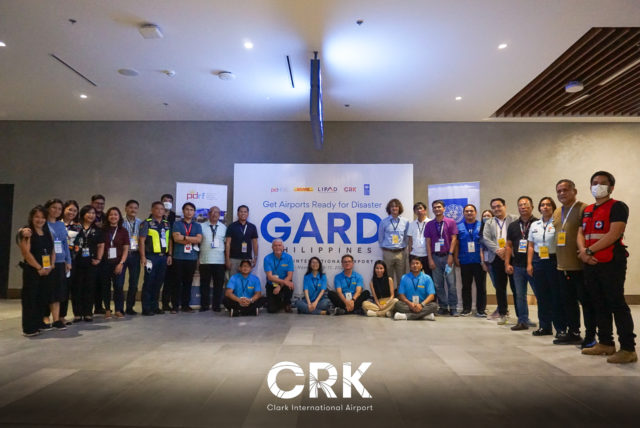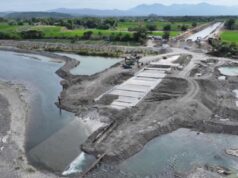November 15, 2022, Clark, Pampanga—The Philippine Disaster Resilience Foundation (PDRF), United Nations Development Programme (UNDP), and the Deutsche Post DHL Group launched the Philippines’ first Get Airports Ready for Disaster (GARD) Workshop from November 9 to 11 at the new Clark International Airport in Clark (CRK), Pampanga.
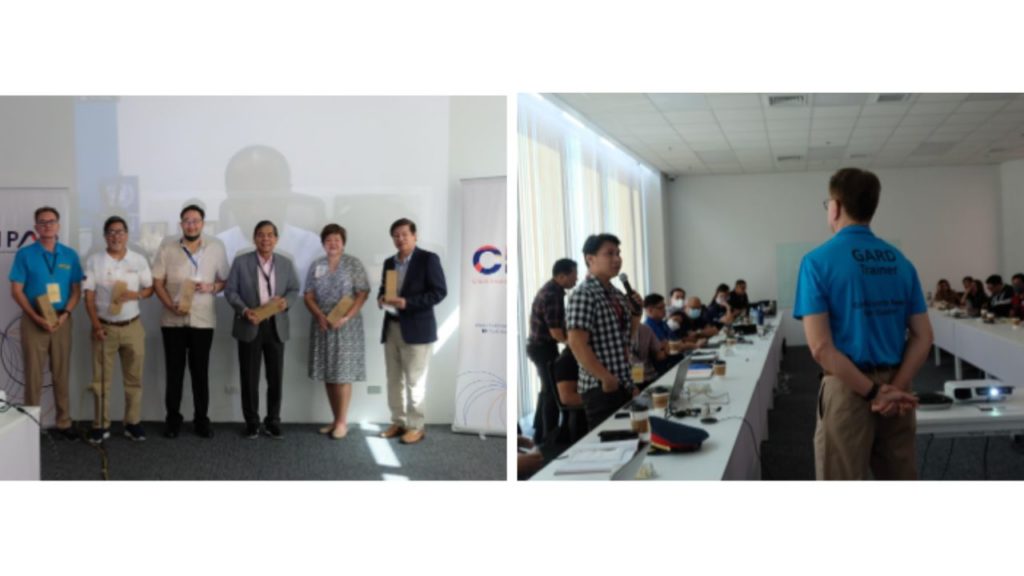
The three-day workshop was organized to strengthen Filipino airports’ capacities in dealing with disasters, with CRK as the pilot model.
“Efficient airport logistics is critical, particularly during times of disaster. Our GARD program helps prepare airports and provides the necessary follow-up actions to ensure continuity. We look forward to working with PDRF in developing the processes for a resilient airport in Clark,” said Carl Schelfhaut, Vice President, International Relations and Regulatory Affairs Asia Pacific of Deutsche Post International, and Head of the GoHelp Program for Asia Pacific.
More than 20 participants attended the workshop, focusing on airport assessment, creating action plans, and report writing. These skills will further develop airports as reliable and efficient delivery hubs for food, medical equipment, and even personnel before, during, and after the disasters.
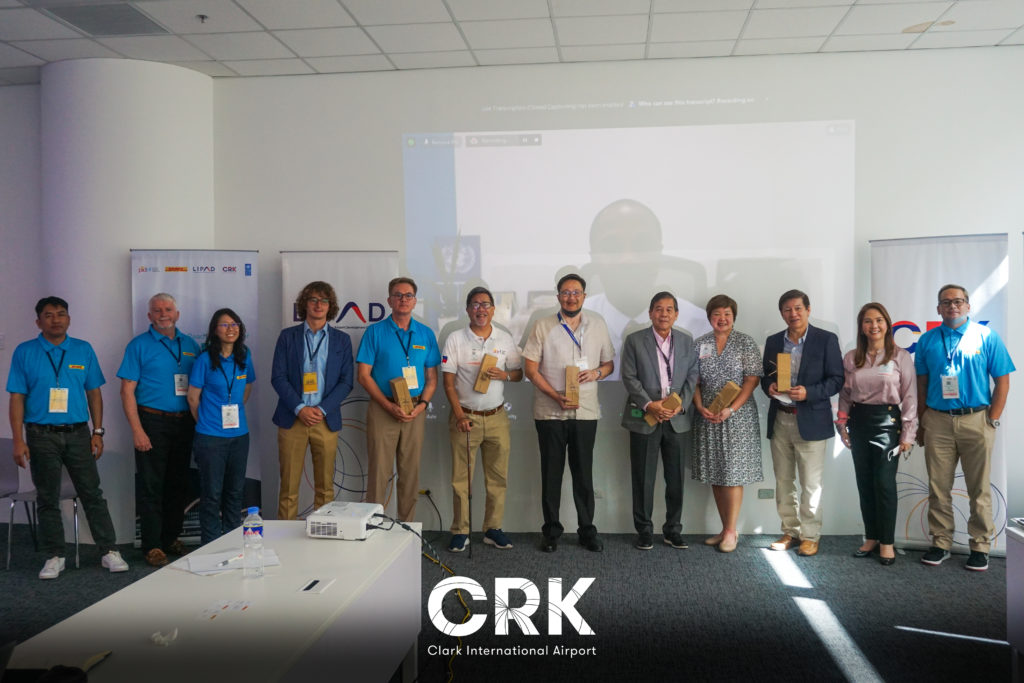
In attendance during the event were notable representatives from different government and private sector partners. The Luzon International Premiere Airport Development Corporation (LIPAD) lent assistance and resources in the coordination of the three-day workshop as the owners of the GARD initiative.
“UNDP will always be true to our role in supporting the government to ensure that the foundation of our recovery work is long-term resilience. Our partnership with PDRF, LIPAD, and DHL is proof that the more we engage the private sector, the better results we deliver to the underserved communities,” said UNDP Philippines Deputy Resident Representative Edwine Carrie.
“Clark, being a disaster resilient location, is really ideal for this exercise. With the GARD workshop, we will be able to systematically assess our capabilities and readiness to address disasters and identify areas where there are opportunities to make improvements. We are grateful for our partners’ enthusiasm in joining us in this workshop as it is important for all stakeholders to come and work together. With CRK’s new terminal, we already have the facilities, but equally important is how to make these facilities relevant during difficult times,” LIPAD CEO Noel Manankil said during his remarks.
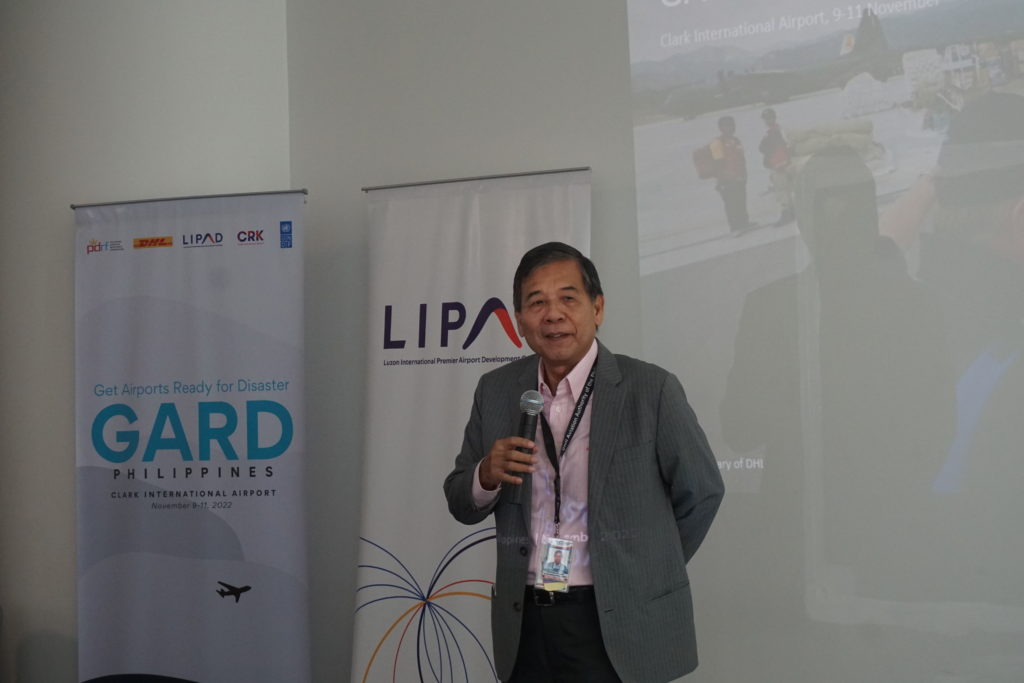
Conducted by GARD instructors, specially trained logistics and training experts from Deutsche Post DHL, GARD participants learned how to optimize logistics processes and capacities for when international relief goods begin to pour into the airport.
Warehouse space management, for example, was one of the program’s focus areas. Participants were instructed to assess storage options for relief goods and whether the necessary equipment such as forklifts, pallets, gloves, and boxes, was available for cargo handling. The trainees then evaluated the results and developed contingency plans accordingly during workshops.
The program also aimed to raise awareness towards the airport and delivery workforce on the volume of importance they hold through their work in the recovery of communities post-calamities and develop preparation processes and emergency plans when faced with a calamity.
“If there’s one thing we have learned, it is that all of us are connected. The multiple emergencies that we sometimes face compels us to work together. With your help, we can make this a more secure world,” shared PDRF President Butch Meily.
Established in 2009, GARD aims to echo the demand for airport preparedness and response capacity of transportation hubs in the event of disasters. The program, launched in 60 airports in 28 countries, includes training personnel in handling the influx of goods and people during calamities, assisting authorities of the area in relief operations, and assessing the current state of concerned airports.


